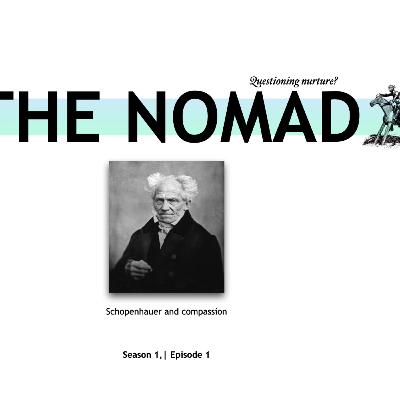Discover The Øffensive
The Øffensive

3 Episodes
Reverse
Perhaps the most important work of philosophy written in the twentieth century, Tractatus Logico-Philosophicus was the only philosophical work that Ludwig Wittgenstein published during his life. Written in short, carefully numbered paragraphs of extreme brilliance, it captured the imagination of a generation of philosophers. For Wittgenstein, logic was something we use to conquer a reality which is in itself both elusive and unobtainable. He famously summarized the book in the following words: 'What can be said at all can be said clearly; and what we cannot talk about we must pass over in silence.' David Pears and Brian McGuinness received the highest praise for their meticulous translation. The work is prefaced by Bertrand Russell's original introduction to the first English edition.
https://www.goodreads.com/author/quotes/7672.Ludwig_Wittgenstein?page=5
“Philosophy is not a body of doctrine but an activity.”
― Ludwig Wittgenstein, Tractatus Logico-Philosophicus
Socrates (469 BC – 399 BC) was one of the greatest Greek philosophers. ... Socrates was tried for his life in 399 BC, found guilty, and put to death by drinking hemlock (a herbal poison). The story of his trial and death is the subject of a tract by Plato which is called the Apologia.
Plato's The Apology is an account of the speech Socrates makes at the trial in which he is charged with not recognizing the gods recognized by the state, inventing new deities, and corrupting the youth of Athens. Socrates' speech, however, is by no means an "apology" in our modern understanding of the word. The name of the dialogue derives from the Greek "apologia," which translates as a defense, or a speech made in defense. Thus, in The Apology, Socrates attempts to defend himself and his conduct--certainly not to apologize for it.
For the most part, Socrates speaks in a very plain, conversational manner. He explains that he has no experience with the law courts and that he will instead speak in the manner to which he is accustomed: with honesty and directness. He explains that his behavior stems from a prophecy by the oracle at Delphi which claimed that he was the wisest of all men. Recognizing his ignorance in most worldly affairs, Socrates concluded that he must be wiser than other men only in that he knows that he knows nothing. In order to spread this peculiar wisdom, Socrates explains that he considered it his duty to question supposed "wise" men and to expose their false wisdom as ignorance. These activities earned him much admiration amongst the youth of Athens, but much hatred and anger from the people he embarrassed. He cites their contempt as the reason for his being put on trial.
https://www.goodreads.com/work/quotes/1692879
“Wealth does not bring about excellence, but excellence makes wealth and everything else good for men, both individually and collectively.”
― Socrates, Apology11
One of the greatest philosophers of the nineteenth century, Schopenhauer believed that human action is determined not by reason but by 'will' - the blind and irrational desire for physical existence. This selection of his writings on religion, ethics, politics, women and many other themes is taken from Schopenhauer's last work, Parerga and Paralipomena, which he published in 1851. He depicts humanity as locked in a struggle beyond good and evil, each individual absolutely free within a Godless world in which art, morality and self-awareness are our only salvation. This innovative and pessimistic view proved powerfully influential upon philosophy and art, affecting the work of Nietzsche and Wittgenstein among others.
https://play.google.com/books/reader?id=ajkkDwAAQBAJ







